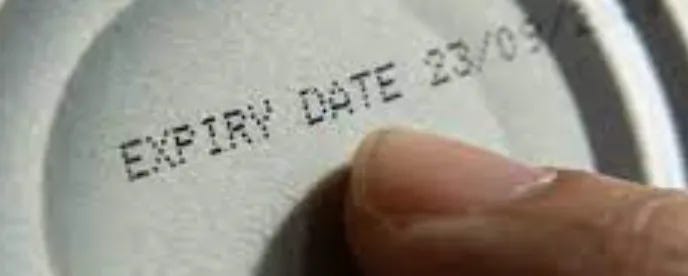We throw out food and meds if they are past their expiration dates. As we have been trained in a Pavlovian manner by corporations driven by profits (and safety, to be fair) to do so.
But most “food” expiration dates are meaningless.
So, don’t go nuts if you swallow something that went past the stated expiration date.
You may be surprised to hear about medications, too.
Though personally, I hope to live way past my personal expiration date, LOL, but that’s another story.
First, let’s get the definitions straight:
FOOD:
Expiration dates for FOOD are just “general” guidelines.
They aren’t mandated by the Food and Drug Administration.
Food expiration dates refer to how long an unopened food product will remain at peak quality and freshness.
They are “not” an indication of safety.
Foods are generally still safe to consume “after” the date has passed, assuming they were properly stored from the date of purchase.
All foods, over the tincture of time… turn bad.
But how long can we store foods and have them still be “safe” to eat?
The FDA has a FoodKeeper app that can help you learn more about nearly every kind of food and storage.
This FoodKeeper helps you understand food and beverage storage. It will help you maximize the freshness and quality of items
The FDA emphasizes, “you will be able to keep items fresh longer if they are stored properly.”
Often, past expiration dates.
This app explains that some foods should be used by their for-use date.
But others, if they are stored properly, last longer.
What are the safest foods to eat “after” their expiration date


